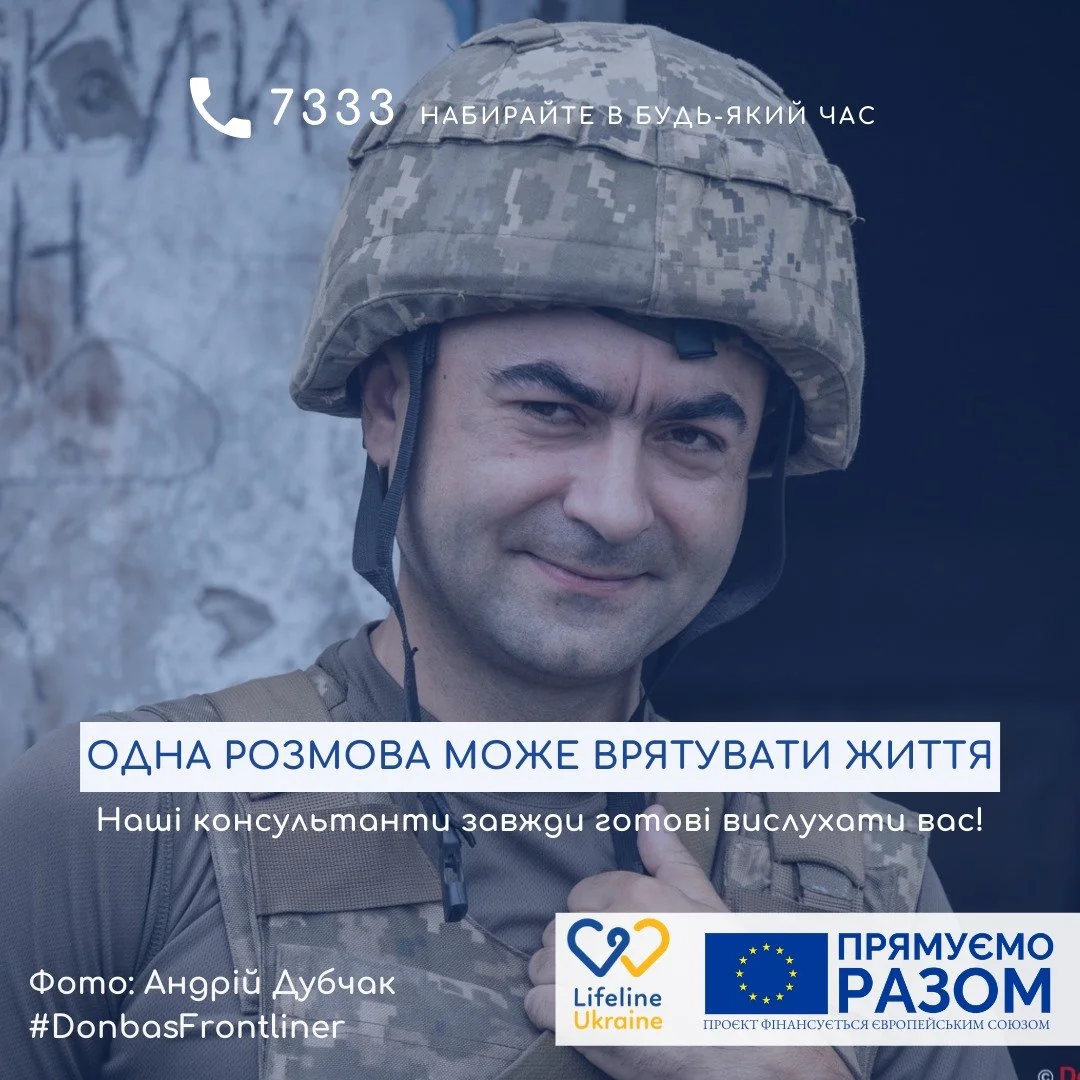Lifeline Ukraine delivers mental health support and suicide prevention
I don’t need to outline the endless reasons to support mental health initiatives — sadly, I think most people know someone who has lost their life to mental health. While someone’s face may come to mind as you read that last sentence, mental health is still something not as often talked about as it could be (though I am grateful that in recent years, it has been becoming less stigmatized in Canada).
Maybe you or someone you love has experienced anxiety, depression, or other mood disorders. (Here are some resources if you are in crisis and here are some resources on where you can turn for help.) There are many ways to support your mental health, like through self-care practices, meditation, and talking with a professional.
Lifeline Ukraine is an organization offering mental health support in Ukraine. I will donate the next $750 I raise through Planted to Lifeline Ukraine, an incredibly important resource for Ukrainians living through the trauma of war.
This week, I donated $770 to Cobblestone Freeway Foundation, and the week before that $770 to Ukrainian Patriot. (My goal is $750 for each organization, but whenever people tell me to keep the change when they buy a book, I donate the extra money to whatever organization I’m raising for at the time.)
About Lifeline Ukraine
Lifeline Ukraine is a national suicide prevention and mental health support hotline in Ukraine. Operating 24/7, it was established for veterans and their family members and now serves all people in Ukraine in multiple languages through the phoneline and online chat feature.
Founded by Paul Niland in 2019, Lifeline Ukraine was initiated at the request of Dr. Ulana Suprun, who at the time was Ukraine’s acting minister of health.
The Lifeline Ukraine team has responded to more than 25,000 calls and chats, supporting thousands of people. Donations to the organization cover the operational costs of the national hotline, 93% of which are salaries for the members of the Lifeline Ukraine team.
Some of the people on the team include veterans, which allows veterans who are calling in to talk to someone with a shared experience, as Paul explained in an interview with the Kyiv Post in 2020.
My connection to Lifeline Ukraine
I met Paul when I lived in Kyiv in 2017. Originally from Ireland, Paul has lived in Ukraine for two decades and is a writer, political commentator, businessman, and a whole lot of other things. He’s been involved with What’s On, a magazine based in Kyiv, as well as f*uck u putin, which sells merchandise with that catchy slogan, and proceeds from sales support the Ukrainian army. While I’m not one to swear, I proudly wear my fup bracelet and sweater. (If Ukrainian Patriot is at an event in your city, they have fup goods for sale, or you can order online.)
Paul writes insightful and powerful articles for various publications, including Byline Times and Atlantic Council. His Facebook and Twitter accounts are my go-tos, not only for his writing but also for the articles and information he shares from reliable and trustworthy sources.
“One conversation can save a life.” Photo by Andriy Dubchak/Donbas Frontliner. Image posted on Lifeline Ukraine's Facebook page.
Since Paul announced the launch of Lifeline Ukraine in 2019, I’ve followed along, in awe of just how many people the team has supported. And since russia launched its full-scale invasion of Ukraine in February, Lifeline Ukraine, its team, and the people who turn to the organization for support have been on my mind.
Mental health support is important at any time. During wartime, that need only increases.
“We face a combination of challenges at present — many of our colleagues have taken up arms again to fight back against the invasion,” Paul wrote on Facebook in March. “If you pray, please say a prayer for their safe return. With a reduced team, we are handling more requests for support than ever. The trauma that putin is responsible for is both immediate and acute, and we can expect to be dealing with the effects of this long after Ukraine’s victory over this unjust invasion.”
To learn more about Lifeline Ukraine and its work, visit its website, Facebook, Twitter, and Instagram. And this 2020 article from RFE/RL shares more about Paul, Lifeline Ukraine, and mental health in Ukraine.
Click here to donate directly to Lifeline Ukraine.
Where to Purchase Planted
To support Lifeline Ukraine’s work by purchasing Planted, fill out this form.
Once you send me the requested information, I’ll email you the total, and you can send me an e-transfer. If you’re picking up the book, I’ll give you some time options of when to come by.
The book is $25 with free Winnipeg pickup. Shipping to Canada is $4 per book, and shipping to the U.S. is $6 per book (for shipping outside Canada and the U.S., send me an email, and I’ll find out the cost). If you’re outside Canada, you can pay by credit card here.
The ebook will also be available shortly if you prefer that format.
Thank you for your support. Slava Ukraini! Heroyam slava! Glory to Ukraine! Glory to the heroes!
